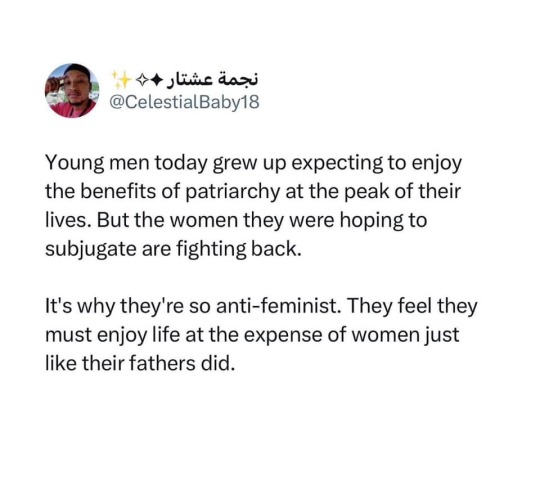Text
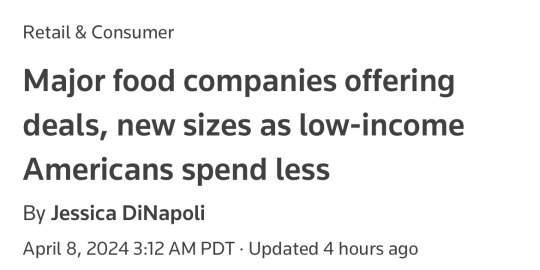

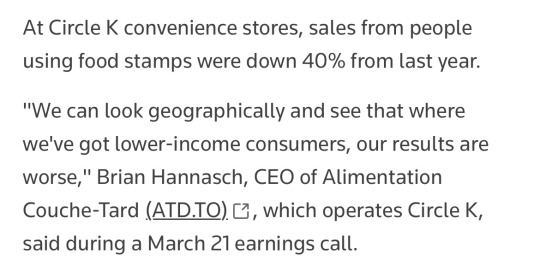
the way this is phrased to avoid confronting the reality that people can’t afford food anymore
11K notes
·
View notes
Text

Pour one out for a real one.
83K notes
·
View notes
Text
one of the biggest things I can advocate for (in academia, but also just in life) is to build credibility with yourself. It’s easy to fall into the habit of thinking of yourself as someone who does things last minute or who struggles to start tasks. people will tell you that you just need to build different habits, but I know for me at least the idea of ‘habit’ is sort of abstract and dehumanizing. Credibility is more like ‘I’ve done this before, so I know I can do it, and more importantly I trust myself to do it’. you set an assignment goal for the day and you meet it, and then you feel stronger setting one the next day. You establish a relationship with yourself that’s built on confidence and trust. That in turn starts to erode the barrier of insecurity and perfectionism and makes it easier to start and finish tasks. reframing the narrative as a process of building credibility makes it easier to celebrate each step and recognize how strong your relationship with yourself can become
18K notes
·
View notes
Text
The thing I keep coming back to, with all the *gestures expansively* is that real life doesn't have peaceful epilogues.
Every single win has to be defended. Forever. I'm sorry. It sucks. The Nazis lost until they stopped losing. The US had abortion rights, and then 50 years later it didn't. Empires fall, and then they invade other countries again. Oppressive regimes are overthrown and replaced with other oppressive regimes. You will never finish the work etc etc etc. Which is why it's so fucking important to be able to acknowledge and celebrate progress, when it happens. The people who came before you didn't put in all that work for nothing, and you aren't, either. You can't save it all for the Ultimate Victory because there is never going to be an Ultimate Victory. There's no such thing as a time when everything is good, and ours shall not be the commune of Heaven.
#it is not given to you to complete the work and neither is it given to you to abandon it#(tags from linearao3)
21K notes
·
View notes
Photo
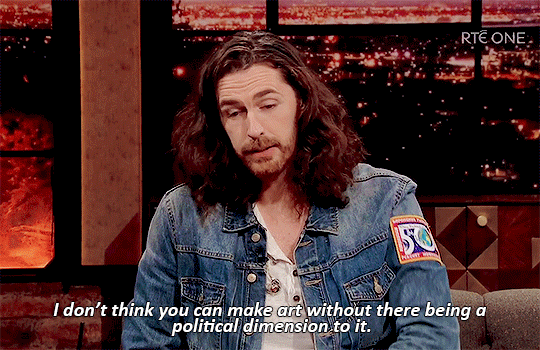

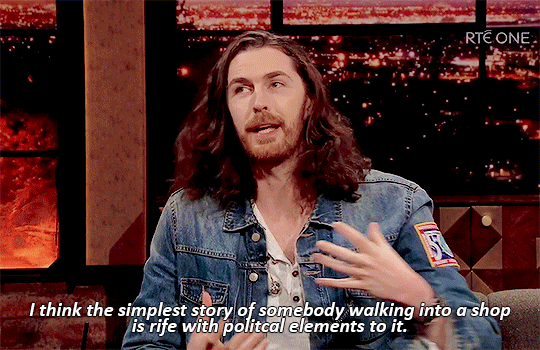
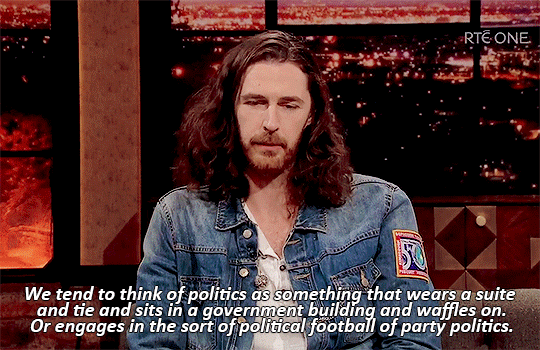
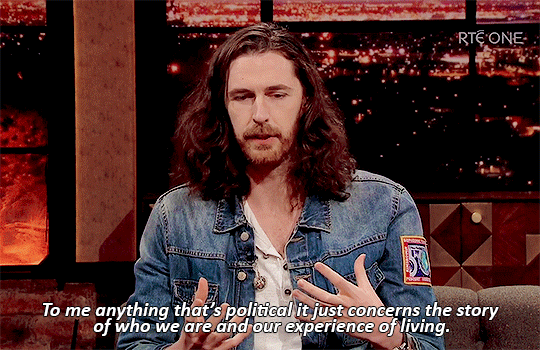
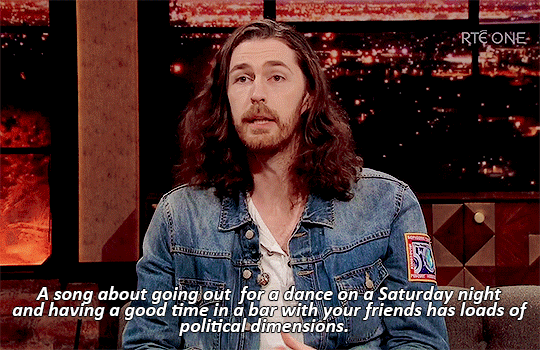


Do you write music with the view of being politically active and delivering a message or does it just happen and the rest follows?
93K notes
·
View notes
Text
CDA 230 bans Facebook from blocking interoperable tools
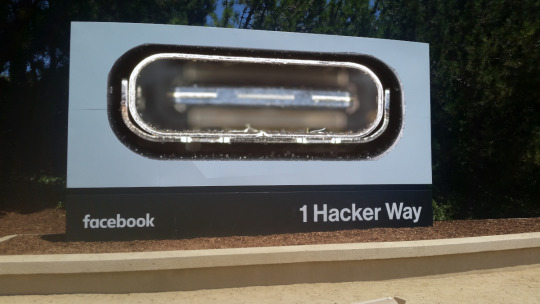
I'm touring my new, nationally bestselling novel The Bezzle! Catch me TONIGHT (May 2) in WINNIPEG, then TOMORROW (May 3) in CALGARY, then SATURDAY (May 4) in VANCOUVER, then onto Tartu, Estonia, and beyond!

Section 230 of the Communications Decency Act is the most widely misunderstood technology law in the world, which is wild, given that it's only 26 words long!
https://www.techdirt.com/2020/06/23/hello-youve-been-referred-here-because-youre-wrong-about-section-230-communications-decency-act/
CDA 230 isn't a gift to big tech. It's literally the only reason that tech companies don't censor on anything we write that might offend some litigious creep. Without CDA 230, there'd be no #MeToo. Hell, without CDA 230, just hosting a private message board where two friends get into serious beef could expose to you an avalanche of legal liability.
CDA 230 is the only part of a much broader, wildly unconstitutional law that survived a 1996 Supreme Court challenge. We don't spend a lot of time talking about all those other parts of the CDA, but there's actually some really cool stuff left in the bill that no one's really paid attention to:
https://www.aclu.org/legal-document/supreme-court-decision-striking-down-cda
One of those little-regarded sections of CDA 230 is part (c)(2)(b), which broadly immunizes anyone who makes a tool that helps internet users block content they don't want to see.
Enter the Knight First Amendment Institute at Columbia University and their client, Ethan Zuckerman, an internet pioneer turned academic at U Mass Amherst. Knight has filed a lawsuit on Zuckerman's behalf, seeking assurance that Zuckerman (and others) can use browser automation tools to block, unfollow, and otherwise modify the feeds Facebook delivers to its users:
https://knightcolumbia.org/documents/gu63ujqj8o
If Zuckerman is successful, he will set a precedent that allows toolsmiths to provide internet users with a wide variety of automation tools that customize the information they see online. That's something that Facebook bitterly opposes.
Facebook has a long history of attacking startups and individual developers who release tools that let users customize their feed. They shut down Friendly Browser, a third-party Facebook client that blocked trackers and customized your feed:
https://www.eff.org/deeplinks/2020/11/once-again-facebook-using-privacy-sword-kill-independent-innovation
Then in in 2021, Facebook's lawyers terrorized a software developer named Louis Barclay in retaliation for a tool called "Unfollow Everything," that autopiloted your browser to click through all the laborious steps needed to unfollow all the accounts you were subscribed to, and permanently banned Unfollow Everywhere's developer, Louis Barclay:
https://slate.com/technology/2021/10/facebook-unfollow-everything-cease-desist.html
Now, Zuckerman is developing "Unfollow Everything 2.0," an even richer version of Barclay's tool.
This rich record of legal bullying gives Zuckerman and his lawyers at Knight something important: "standing" – the right to bring a case. They argue that a browser automation tool that helps you control your feeds is covered by CDA(c)(2)(b), and that Facebook can't legally threaten the developer of such a tool with liability for violating the Computer Fraud and Abuse Act, the Digital Millennium Copyright Act, or the other legal weapons it wields against this kind of "adversarial interoperability."
Writing for Wired, Knight First Amendment Institute at Columbia University speaks to a variety of experts – including my EFF colleague Sophia Cope – who broadly endorse the very clever legal tactic Zuckerman and Knight are bringing to the court.
I'm very excited about this myself. "Adversarial interop" – modding a product or service without permission from its maker – is hugely important to disenshittifying the internet and forestalling future attempts to reenshittify it. From third-party ink cartridges to compatible replacement parts for mobile devices to alternative clients and firmware to ad- and tracker-blockers, adversarial interop is how internet users defend themselves against unilateral changes to services and products they rely on:
https://www.eff.org/deeplinks/2019/10/adversarial-interoperability
Now, all that said, a court victory here won't necessarily mean that Facebook can't block interoperability tools. Facebook still has the unilateral right to terminate its users' accounts. They could kick off Zuckerman. They could kick off his lawyers from the Knight Institute. They could permanently ban any user who uses Unfollow Everything 2.0.
Obviously, that kind of nuclear option could prove very unpopular for a company that is the very definition of "too big to care." But Unfollow Everything 2.0 and the lawsuit don't exist in a vacuum. The fight against Big Tech has a lot of tactical diversity: EU regulations, antitrust investigations, state laws, tinkerers and toolsmiths like Zuckerman, and impact litigation lawyers coming up with cool legal theories.
Together, they represent a multi-front war on the very idea that four billion people should have their digital lives controlled by an unaccountable billionaire man-child whose major technological achievement was making a website where he and his creepy friends could nonconsensually rate the fuckability of their fellow Harvard undergrads.

If you'd like an essay-formatted version of this post to read or share, here's a link to it on pluralistic.net, my surveillance-free, ad-free, tracker-free blog:
https://pluralistic.net/2024/05/02/kaiju-v-kaiju/#cda-230-c-2-b

Image:
D-Kuru (modified):
https://commons.wikimedia.org/wiki/File:MSI_Bravo_17_(0017FK-007)-USB-C_port_large_PNr%C2%B00761.jpg
Minette Lontsie (modified):
https://commons.wikimedia.org/wiki/File:Facebook_Headquarters.jpg
CC BY-SA 4.0:
https://creativecommons.org/licenses/by-sa/4.0/deed.en
239 notes
·
View notes
Text
As a rule of thumb, don't reblog donation posts or people asking for donations unless they've been vetted and reblogged by Palestinian bloggers. We usually go to lengths to verify this shit because we know scammers have been faking to get people to send them money, using the urgency of our genocide as bait.
It's disgusting this is what we're dealing with, but people are losing money because of some truly evil people out there.
Accounts don't just randomly spring up on tumblr without gofundmes while asking for someone to help them create a campaign. Fuck out of here with that shit.
70K notes
·
View notes
Text
person looking at any global or historical phenomanon: surely i can analyze this strictly through the united states' racial structures, right? right?
387 notes
·
View notes
Text

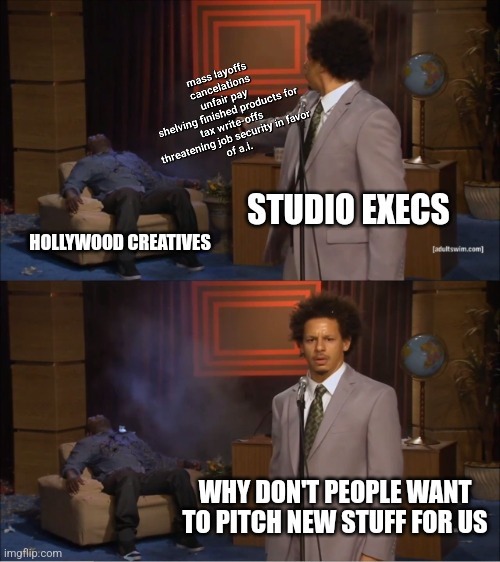
#Can we stop running business on the cancer model?#Like growth is NEVER infinite so why the fuck are we still operating like it is?
87K notes
·
View notes
Text
Remember that the laws establishing and protecting the rights of unions were a shaky truce made by governments afraid of being overthrown. They’re a way to pacify unions, give them what they want so they don’t get angry enough to start burning shit again
Those laws aren’t what makes unions possible, viable, or effective. Those laws exist because unions were so effective even without them
People act like they can’t unionize just because they live in America, or their state is Right to Work, or the company they work for is notoriously anti-union. But labor movements survived periods of being literally mowed down with machine guns by the US Army - so we don’t need to be scared off by a few posters
The fundamental power of a union comes from the fact that we outnumber them, and that the workplace doesn’t move without our labor. That power doesn’t need to be permitted and can’t be legislated away. So join a damn union!
9K notes
·
View notes
Photo


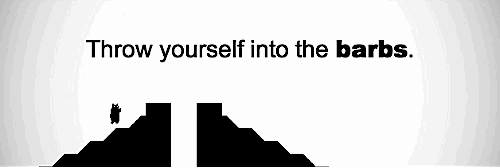



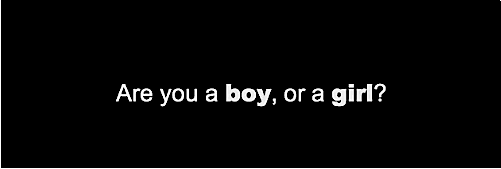

“I loved you, always.”
404K notes
·
View notes
Text
“If a society puts half its children into short skirts and warns them not to move in ways that reveal their panties, while putting the other half into jeans and overalls and encouraging them to climb trees, play ball, and participate in other vigorous outdoor games; if later, during adolescence, the children who have been wearing trousers are urged to “eat like growing boys,” while the children in skirts are warned to watch their weight and not get fat; if the half in jeans runs around in sneakers or boots, while the half in skirts totters about on spike heels, then these two groups of people will be biologically as well as socially different. Their muscles will be different, as will their reflexes, posture, arms, legs and feet, hand-eye coordination, and so on. Similarly, people who spend eight hours a day in an office working at a typewriter or a visual display terminal will be biologically different from those who work on construction jobs. There is no way to sort the biological and social components that produce these differences. We cannot sort nature from nurture when we confront group differences in societies in which people from different races, classes, and sexes do not have equal access to resources and power, and therefore live in different environments. Sex-typed generalizations, such as that men are heavier, taller, or stronger than women, obscure the diversity among women and among men and the extensive overlaps between them… Most women and men fall within the same range of heights, weights, and strengths, three variables that depend a great deal on how we have grown up and live. We all know that first-generation Americans, on average, are taller than their immigrant parents and that men who do physical labor, on average, are stronger than male college professors. But we forget to look for the obvious reasons for differences when confronted with assertions like ‘Men are stronger than women.’ We should be asking: ‘Which men?’ and ‘What do they do?’ There may be biologically based average differences between women and men, but these are interwoven with a host of social differences from which we cannot disentangle them.”
— Ruth Hubbard, “The Political Nature of ‘Human Nature’“
(via gothhabiba)
Yes.
#Gender Issues#YES#Everytime I see something biologcally essentialist I feel like I'm getting gaslit
106K notes
·
View notes
Text
This might suck to hear, but if you're a people pleaser that is motivated by praise and avoids disagreements, you are easy to manipulate.
When I was in therapy after surviving years of domestic violence, my therapist had to tell me that my personality was primed for abuse and we needed to work on that so I would be better equipped to see the red flags and respond appropriately in the future.
I'm still working on this, and it's been 8 years. If you tell someone how you want to be treated, what behaviors you don't tolerate in your life, what you're looking for in that relationship, and they react negatively, don't compromise yourself. Just move on.
This one's for all the praise-kink girlies: differentiate, self-actualize, stay sexy
#I have never heard of a people pleaser who did not cause countless problems for themselves and others#Use these phrases and break that cycle
35K notes
·
View notes
Text
apparently people are now purchasing thick water to make slimes with because of a trend on tiktok
thick water is for disabled people who can’t swallow properly. stores usually have extremely limited supplies of it.
please don’t buy thick water for fun or to make slime with. it’s literally the only way some disabled people can drink anything. It’s not a fucking toy
59K notes
·
View notes
Text

If you dare come at me about banning straws, I will throw you into the sun cannon. I’m disabled, I’m crippled, I need disposable plastic straws, and all those pricey ridiculous alternatives aren’t working as well. Plastic straws were invented for the disabled.
Way to shit all over a vital access need because you think straws are worse than corporate greed.
We all care about the turtles, the seals, the oceans, obviously. Notice how the easiest thing to yell about was something that would barely affect anything but appealed heavily to emotional discourse.
The disabled community is huge, and it can be joined by anyone. Most of those As Seen On TV products were invented for us. Society still mocks us and ignores us, and often outright harms us in multiple ways.
Communicate better. Listen better. But stop putting us out in the cold because you are inconvenienced by our simplest needs.
220K notes
·
View notes
Note
Are you a Gold Star lesbian? (Just in case you don't know what it means, a Gold Star lesbian is a lesbian that has never had the sex with a guy and would never have any intentions of ever doing so)
So I got this ask a while ago, and I’ve been lowkey thinking about it ever since.
First: No. I am a queer, cranky dyke who is too old for this sort of bullshit gatekeeping.
Second: What an unbelievable question to ask someone you don’t even know! What an incomprehensibly rude thing to ask, as if you’re somehow owed information about my sexual history. You’re not! No one—and I can’t reiterate this enough, but no one—owes you the details of their sex lives, of their trauma, or of anything about themselves that they don’t feel like sharing with you.
The clickbait mills of the internet and the purity police of social media would like nothing more than to convince everyone that you owe these things to everyone. They would like you to believe that you have to prove that you’re traumatized enough to identify with this character, that you can’t sell this article about campus rape without relating it to your own sexual assault, that you can’t talk about queer issues without offering up a comprehensive history of your own experiences, and none of those things are true. You owe people, and especially random strangers on the internet, nothing, least of all citations to somehow prove to them that you have the right to talk about your own life.
This makes some people uncomfortable, and to be clear, I think that that’s good: people who feel entitled to demand this information should be uncomfortable. Refusing to justify yourself takes power away from people who would very much like to have it, people who would like to gatekeep and dictate who is permitted to speak about what topics or like what things. You don’t have to justify yourself. You don’t have to explain that you like this ship because this one character reminds you a bit of yourself because you were traumatized in a vaguely similar way and now— You don’t have to justify your queerness by telling people about the best friend you had when you were twelve, and how you kissed, and she laughed and said it was good practice for when she would kiss boys and your stomach twisted and your mouth tasted like bile and she was the first and last girl you kissed, but—
You don’t owe anyone these pieces of yourself. They’re yours, and you can share them or not, but if someone demands that you share, they’re probably not someone you should trust.
Third: The idea of gold star lesbians is a profoundly bi- and trans- phobic idea, often reducing gender to genitals and the long, shared history of queer women of all identities to a stark, artificial divide where some identities are seen as purer or more valuable than others. This is bullshit on all counts.
There’s a weird and largely artificial division between bisexuals and lesbians that seems to be intensifying on tumblr, and I have to say: I hate it. Bisexual women aren’t failed lesbians. They’re not somehow less good or less valid because they’re attracted to [checks notes] people. Do you think that having sex with a man somehow changes them? What are you so worried about it for? I’ve checked, and having sex with a man does not, in fact, make your vagina grow teeth or tentacles. Does that make you feel better? Why is what other people are doing so threatening to you?
Discussions of gold star lesbians are often filled with tittering about hehe penises, which is unfortunate, since I know a fair few lesbians who have penises, and even more lesbians who’ve had sex with people, men and women alike, who have penises. I’m sorry to report that “I’m disgusted by a standard-issue human body part” is neither a personality nor anything to be proud of. I’m a dyke and I don’t especially like men, but dicks are just dicks. You don’t have to be interested in them, but a lot of people have them, and it doesn’t make you less of a lesbian to have sex with someone who has a dick.
There’s so much garbage happening in the world—maybe you haven’t noticed, but things are kind of Not Great in a lot of places, and there’s a whole pandemic thing that’s been sort of a major buzzkill? How is this something that you’re worried about? Make a tea, remind yourself that other people’s genitalia and sexual history are none of your business, maybe go watch a video about a cute animal or something.
Fourth: The idea of gold star lesbians is a shitty premise that argues that sexuality is better if it’s always been clear-cut and straightforward—but it rarely is. We live in a very, very heterosexist culture. I didn’t have a word for lesbian until many years after I knew that I was one. How can you say that you are something when your mouth can’t even make the shape of it? The person you are at 24 is different to the person you are at 14, and 34, and 74. You change. You get braver. The world gets wider. You learn to see possibilities in the shadows you used to overlook. Of course people learn more about themselves as they age.
Also, many of us, especially those of us who grew up in smaller towns, or who are over the age of, say, 25, grew up in times and places where our sexuality was literally criminal.
Shortly after I graduated high school, a gay man in my state was sentenced to six months in jail. Why? Well, he’d hit on someone, and it was a misdemeanor to “solicit homosexual or lesbian activity”, which included expressing romantic or sexual interest in someone who didn’t reciprocate. You might think, then, that I am in fact quite old, but you would be mistaken. The conviction was in 1999; it was overturned in 2002.
I grew up knowing this: the wrong thing said to the wrong person would be sufficient reason to charge me with a crime.
In the United States, the Defense of Marriage Act was passed in 1996, clarifying that according to the federal government, marriage could only ever be between one man and one woman. It also promised that even if a state were to legalize same-sex unions, other states wouldn’t have to recognize them if they didn’t want to. And wow, they super did not want to, because between 1998 and 2012, a whopping thirty states had approved some sort of amendment banning same-sex marriage.
Every queer person who’s older than about 25 watched this, knowing that this was aimed at people like them. Knowing that these votes were cast by their friends and their families and their teachers and their employers.
Some states were worse than others. Ohio passed their bill in 2004 with 62% approval. Mississippi passed theirs the same year with 86% approval. Imagine sitting in a classroom, or at work, or in a church, or at a family dinner, and knowing that statistically, at least two out of every three people in that room felt you shouldn’t be allowed to marry someone you loved.
Matthew Shepard was tortured to death in October of 1998. For being gay, for (maybe) hitting on one of the men who had planned to merely rob him. Instead, he was tortured and left to die, tied to a barbed wire fence. His murderers were both sentenced to two consecutive life terms in prison. This was controversial, because a nonzero number of people felt that Shepard had brought it upon himself.
Many of us sat at dinner tables and listened to this discussion, one that told us, over and over, that we were fundamentally wrong, fundamentally undeserving of love or sympathy or of life itself.
This is a tiny, tiny sliver of history—a staggeringly incomplete overview of what happened in the US over about ten years. Even if this tiny sliver is all that there were, looking at this, how could you blame someone for wanting to try being not Like This? How can you fault someone who had sex, maybe even had a bunch of sex, hoping desperately that maybe they could be normal enough to be loved if they just tried harder? How can you say that someone who found themself an uninteresting but inoffensive boyfriend and went on dates and had sex and said that it was fine is somehow less valuable or less queer or less of a lesbian for doing so? For many people, even now, passing as straight, as problematic as that term is, is a survival skill. How dare you imply that the things that someone did to protect themself make them worth less? They survived, and that’s worth literally everything.
Fifth, finally: What is a gold star, anyhow? You’ve capitalized it, like it’s Weighty and Important, but it’s not. Gold stars were what your most generous grade school teacher put on spelling tests that you did really well on. But ultimately, gold stars are just shiny scraps of paper. They don’t have any inherent value: I can buy a thousand of them for five bucks and have them at my door tomorrow. They have only the meaning that we give them, only the importance that we give them. We’re not children desperately scrabbling for a teacher’s approval anymore, though. We understand that good and bad are more of a spectrum than a binary, and that a gold star is a simplification. We understand that no number of gold stars will make us feel like we’re special enough or good enough or important enough, or fix the broken places we can still feel inside ourselves. Only we can do that.
The stars are only shiny scraps of paper. They offer us nothing; we don’t need them. I hope that someday, you see that, too.
18K notes
·
View notes
